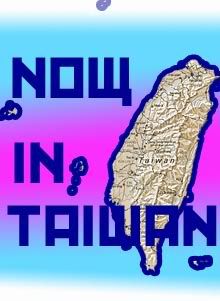Gmail Also Affected By Ban
I've sent a couple pings into China about the Google.com blackout, and I've heard from one friend that Gmail is also affected:
While in China earlier this year, I also experienced a one or two-day Google blackout on March 14, which was possibly a test run. Though to be honest, I was finding the Internet so full of twists and turns at that point it's hard to say.
Now I wish I knew what the technology issues were here - are Google and Gmail linked so closely that blocking one blocks the other? ...so I posted the question on this Slashdot thread, and hopefully I'll have some replies...
...coz those friggin cloistered geeks really need something to talk about other than whether or not Google is evil (to the tune of like 500 comments on the two newswire stories that came out last week). There are of course other issues, like:
1) Google is nowhere near China's most popular search engine, lagging significantly behind Baidu for example. I wonder who the Slashdot nerds would rather see win that battle, a compromised Google or some homegrown Chinese search engine? Which brings us to the next point:
2) The Chinese government, or at least the whole zeitgeist it presides over, encourages negative reporting on Google and other suspect Western media/new media companies. Remember, Western colonialism (yes, from the 18th-early 20th centuries) continues to be upheld as a popular myth explaining why the country is so fucked up now. Google has been blamed for holding and improper business license and god knows what else, with the media coming down like pitbulls as the government changes the rules every other day. Now let me restate this question about Google vs. Baidu, but in a different way:
3) Google knows what China is not seeing, and for now it cannot show it, but possibly in the future it may bring this awareness into play in very subtle ways. Baidu may be able to get away with more now but will certainly aim for much less, slowly opening up to information democracy at the pace of China's domestic social/political change, which is happening, though not the rate the international press might desire it. (Note: Compare this to the US government's position that: elections-in-Afganistan-now-will-solve-everything! The point being, immediate change is not always deep change.) Baidu will also be more invested in the national ascendance, with better connections to power for good and for ill. But there is no saying when and how a heavily monitored Google.cn will make China more global. (Tho I bets they got some crafty insane anti-Chinese tech-warfare they gonna drop on they flat-assed commie bi-yatches, boyee!) In Google vs. Baidu, it's hard not to picture it as an us (West) vs. them battle, and here my instinct is to root for the home team, but God only knows what's right or best?
yeah, it's very annoying. I couldn't use gmail and google just now for about two hrs. It's been like this for the past one week, seriously affecting my work...
While in China earlier this year, I also experienced a one or two-day Google blackout on March 14, which was possibly a test run. Though to be honest, I was finding the Internet so full of twists and turns at that point it's hard to say.
Now I wish I knew what the technology issues were here - are Google and Gmail linked so closely that blocking one blocks the other? ...so I posted the question on this Slashdot thread, and hopefully I'll have some replies...
...coz those friggin cloistered geeks really need something to talk about other than whether or not Google is evil (to the tune of like 500 comments on the two newswire stories that came out last week). There are of course other issues, like:
1) Google is nowhere near China's most popular search engine, lagging significantly behind Baidu for example. I wonder who the Slashdot nerds would rather see win that battle, a compromised Google or some homegrown Chinese search engine? Which brings us to the next point:
2) The Chinese government, or at least the whole zeitgeist it presides over, encourages negative reporting on Google and other suspect Western media/new media companies. Remember, Western colonialism (yes, from the 18th-early 20th centuries) continues to be upheld as a popular myth explaining why the country is so fucked up now. Google has been blamed for holding and improper business license and god knows what else, with the media coming down like pitbulls as the government changes the rules every other day. Now let me restate this question about Google vs. Baidu, but in a different way:
3) Google knows what China is not seeing, and for now it cannot show it, but possibly in the future it may bring this awareness into play in very subtle ways. Baidu may be able to get away with more now but will certainly aim for much less, slowly opening up to information democracy at the pace of China's domestic social/political change, which is happening, though not the rate the international press might desire it. (Note: Compare this to the US government's position that: elections-in-Afganistan-now-will-solve-everything! The point being, immediate change is not always deep change.) Baidu will also be more invested in the national ascendance, with better connections to power for good and for ill. But there is no saying when and how a heavily monitored Google.cn will make China more global. (Tho I bets they got some crafty insane anti-Chinese tech-warfare they gonna drop on they flat-assed commie bi-yatches, boyee!) In Google vs. Baidu, it's hard not to picture it as an us (West) vs. them battle, and here my instinct is to root for the home team, but God only knows what's right or best?


